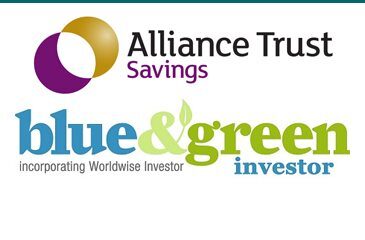

Features
‘Illustrate links’ between money and the real world to boost sustainable investment
The financial world needs to be better at connecting the dots between an investor’s money and the real world impacts it is having, according to a leading sustainable investment fund manager.
Simon Clements, who works for Alliance Trust Investments, said “illustrating the link” between the two would help boost sustainable and responsible investment (SRI).
“Tobacco companies could be a good example, and topical given the recent push from the British Medical Association to ban cigarette sales to anyone born after 2000”, he added.
“Perhaps try and get people to understand it is their money that funds these companies, and it’s their money they will lose if smoking is banned one day.”
Clements was speaking ahead of the launch of two new Alliance Trust SRI funds that will sit within its Sustainable Future range, which is already home to six funds and £1.6 billion in assets.
The Sustainable Future Defensive Managed fund and the Sustainable Future Cautious Managed fund will be available to investors from July 24. The new additions to the range “give advisers clarity about risk levels so that they can match their client’s preferences and requirements to the right fund”, according to Alliance Trust’s head of SRI Peter Michaelis.
Despite the clear traction within SRI, the industry is still dwarfed by mainstream funds. Research by EIRIS shows just over £12 billion was invested in green and ethical retail funds in June 2013 – compared to the £4.5 trillion that the Investment Management Association says is managed in the UK overall.
“The main reasons that the SRI market is not bigger stem from the misconception that investing your money sustainably effectively means sacrificing performance”, said Clements, whose funds have outperformed his peer group for much of the last five years.
“This myth is perpetuated by fund managers who are threatened by the idea that SRI funds can provide good performance whilst simultaneously investing just in sustainable companies and avoiding those whose business acts against society.
“This myth is also firmly entrenched in much of the independent financial adviser (IFA) community, which has long been advising clients that ethical and sustainable is not a good idea unless you want to give your money away.”
Clements said the best way to overcome this barrier was by educating advisers, shouting about strong performance and trying to engage with the wider investor community.
He agreed that delivering returns was the “key focus” for investing, but added, “How you achieve those returns has to be of importance to investors as well, and understanding how your money may be supporting, or not supporting, businesses that are acting against society needs to considered when you make a decision as an investor.”
Photo: Linus Bohman via Flickr
Further reading:
John Ditchfield: ethical investment wins on price, performance and the planet
From ethics to sustainability: shifting the investment debate for 2014
Gaeia, Barchester Green and financial advice on ‘sensible investment’
Ethical investment has taken off despite a ‘great deal of misunderstanding’


 Environment12 months ago
Environment12 months agoAre Polymer Banknotes: an Eco-Friendly Trend or a Groundswell?

 Features11 months ago
Features11 months agoEco-Friendly Cryptocurrencies: Sustainable Investment Choices

 Features12 months ago
Features12 months agoEco-Friendly Crypto Traders Must Find the Right Exchange

 Energy11 months ago
Energy11 months agoThe Growing Role of Solar Panels in Ireland’s Energy Future





























